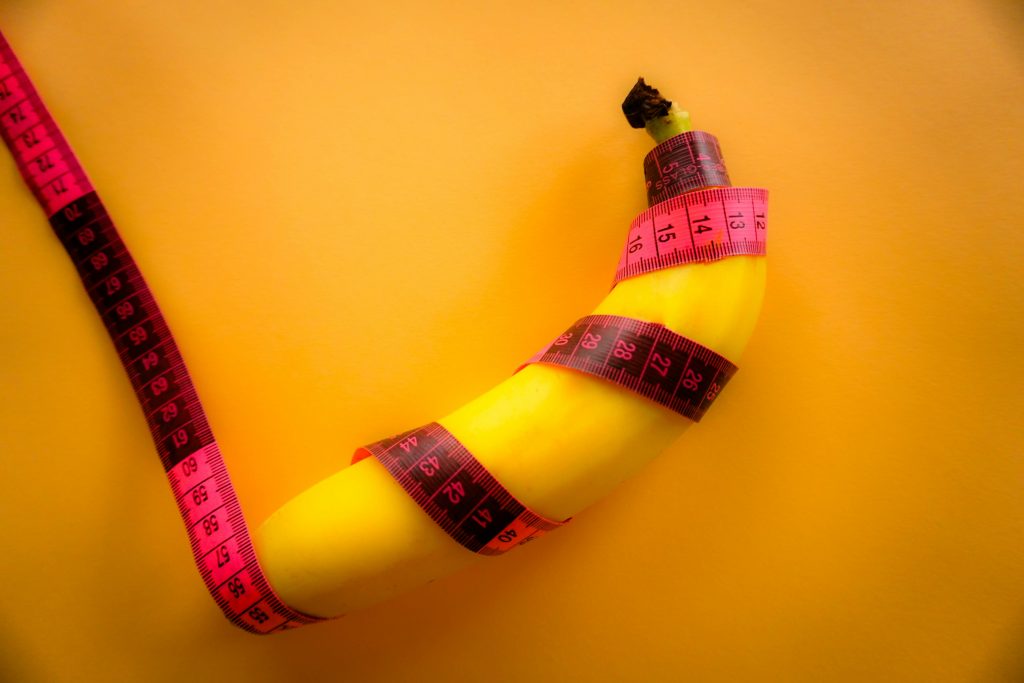Penis Size: What Science Actually Says
We’ve all heard the jokes, seen the comparisons, and maybe even felt the pressure. Penis size is one of those topics that floats between locker room humor, insecurity, porn-fueled expectations, and whispered myths. But what if we paused the noise for a second and actually asked: What does science say about penis size?
Let’s dive into the truth — not the fantasy, not the fear — just the facts.
📏 The Obsession with Size: Where Did It Come From?
Before we even measure anything, let’s step back and ask why we’re so obsessed with size in the first place.
From ancient sculptures to modern porn, the penis has been turned into a symbol of power, masculinity, dominance, and worth. In many cultures, a larger penis was associated with strength and fertility. Fast forward to today, and the internet, adult entertainment, and media continue to amplify unrealistic expectations.
But here’s the thing: almost none of these ideas are rooted in biology or medicine. They’re rooted in performance, comparison, and cultural messaging.
So, let’s clear the table and rebuild the picture based on real data.
🔍 How Big Is the “Average” Penis?
Scientists have actually studied this — a lot more than you might think.
In 2015, a team of British researchers led by Dr. David Veale conducted a systematic review of penis size measurements across 15,000 men worldwide. This is one of the most referenced and respected studies on the subject.
Here’s what they found:
▶️ Average Penis Size (Measured Properly)
- Flaccid (soft): 9.16 cm (3.61 inches)
- Flaccid stretched: 13.24 cm (5.21 inches)
- Erect: 13.12 cm (5.16 inches)
- Average girth (erect): 11.66 cm (4.59 inches)
Yes, you read that right. The average erect penis is just over 5 inches long.
Let that sink in for a moment. Most men are well within this range — but the pressure to measure up to unrealistic standards still weighs heavy.
🎯 Why the Measurement Method Matters
Not all penis measurements are equal. Self-reported sizes (like those submitted to online surveys or dating apps) are consistently exaggerated.
The Veale study, on the other hand, used clinical measurements, taken by health professionals under controlled conditions. That’s why their results are more accurate — and more humbling for those expecting movie-level numbers.
So if you’re comparing yourself to something you saw online, know that:
- It’s often exaggerated
- Angles and editing can distort perception
- What you see in porn is not the norm — it’s the exception
📊 Size Distribution: Are You “Normal”?
Here’s a perspective-shifting stat: 90% of men fall within 1.5 inches of the average length. That means unless you’re at the extreme ends of the scale, you’re typical.
To put it visually:
- 5 inches is the mean.
- Most men (around 95%) range between 4 and 6.3 inches when erect.
- Anything outside this range is uncommon, but not necessarily abnormal.
It’s a classic bell curve — and chances are, you’re in the thick of it.
🧠 The Psychological Weight of Size
Even with all this data, many men still worry: Is mine big enough?
That question often comes from more than just physical curiosity — it comes from insecurity, shame, comparison, and a fear of not being enough.
This has a name: Penis Size Anxiety.
Studies show that many men who think they have a small penis actually fall well within the average. In fact, some men with perfectly average penises feel intense anxiety, while others with below-average lengths feel totally confident.
So what gives?
Perception > Reality.
How we feel about our penis size often matters more than the number itself.
💬 What Do Partners Think?
Let’s break another myth: that size is the most important factor in sexual satisfaction.
Multiple surveys across different demographics and orientations consistently find that:
- Most women and partners value confidence, connection, hygiene, and skill far more than size.
- For vaginal sex, the depth of the vagina is around 3.5 to 4 inches at rest, expanding slightly during arousal. That means larger penises don’t necessarily feel better, and in some cases, they can cause discomfort.
- Communication, trust, and presence are far more important to sexual satisfaction than anatomy alone.
In short: how you use it matters more than how long it is.
🧪 Can You Make It Bigger?
Here’s the truth many marketers won’t tell you:
Most “penis enlargement” products — pills, pumps, oils — are not scientifically proven to work. Many are scams designed to exploit insecurity.
There are two general categories of enlargement methods:
1. Non-surgical
- Extenders/stretching devices: Some studies show minor length increases (1-2 cm) after months of consistent use, but results vary.
- Vacuum pumps: Can cause temporary enlargement due to increased blood flow, but results are short-lived.
- Exercises (e.g., jelqing): No medical evidence supports their effectiveness, and they can cause damage if done improperly.
2. Surgical
- Surgery (like ligament cutting or fat grafting) is rare, expensive, and comes with significant risks — including nerve damage, erectile issues, and scarring.
Bottom line: if you’re considering enhancement, speak to a licensed medical professional, not a sketchy website.
🧘♂️ So What Does Matter?
Let’s shift the question.
Instead of asking: Is my penis big enough?
Ask: Is my penis healthy? Am I taking care of it? Am I confident in my body?
Things that genuinely improve sexual confidence and performance:
- Physical health (exercise, blood circulation)
- Mental health (less stress = better erections)
- Communication with your partner
- Sexual education and skill
- Being emotionally present and confident
None of these require a tape measure.
🧍♂️ Final Thoughts: Redefining “Size”
So, what does science say about penis size?
It says most people are well within the average.
It says size doesn’t strongly correlate with sexual satisfaction.
It says the idea that “bigger is better” is a cultural illusion.
It says confidence, communication, and comfort matter more than centimeters.
The penis is a body part — not a trophy, not a ranking, not a joke.
It’s time we treat it that way.
Penis Life Matter isn’t here to tell you that size doesn’t matter at all — we’re here to say that your health, self-worth, and sexual confidence matter more.
Size is just one number in a much bigger story.



